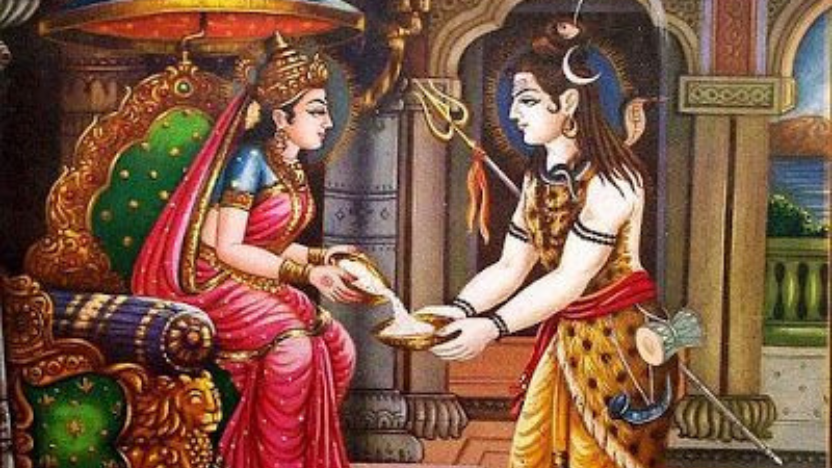In the path of Dharma, serving oneself and others is seen as an important part of human life. We can serve ourselves through meditation, chanting mantras, practising yoga, and leading a disciplined life. We can serve society by giving our time, knowledge, money, clothes, or food to those in need. Among all these, the greatest offering is Annadhanam – the act of offering food.
The word Annadhanam comes from two words: Annam, which means food, and Dhanam, which means charity. It is said in our scriptures that Annadhanam is Maha Dhanam, the highest form of giving because food is essential for life. No matter how rich or poor, everyone needs food to survive. That is why offering food is considered a sacred and selfless act.
Our ancient Tamil saint Thiruvalluvar also emphasised this in his Thirukkural under the chapter “Blessing of Rain”:
தானம் தவம்இரண்டும் தங்கா வியன்உலகம் வானம் வழங்கா தெனின்.
“If charity and penance stop, the world will suffer. Without rain, these good deeds cannot happen.”
This is why our elders always told us not to waste food. Food is not just for filling the stomach, it nourishes the body, mind, and soul. Feeding someone is like feeding God Himself.
The divine Mother of Food – Annapoorna Devi
In Hinduism, Goddess Annapoorna Devi is the divine mother who feeds the world. She is a form of Goddess Parvati and is believed to ensure that no one goes hungry. Her name comes from Annam (food) and Poorna (complete).
Once, when Lord Shiva called the world an illusion and said food was part of that illusion, Goddess Parvati became upset and disappeared. Without her, the earth suffered – there was no rain, no harvest, and people began to starve. Later, moved by compassion, she returned as Annapoorna Devi, distributing food to all at Kashi. To this day, her temple near the Kashi Vishwanath Temple feeds thousands.
She is always seen holding a golden ladle in one hand and a bowl of food in the other, reminding us that food is divine.
During the Pandavas’ exile, Lord Surya blessed them with a magical bowl called Akshaya Patra, which gave unlimited food till Draupadi had eaten. Once, Sage Durvasa came to visit after Draupadi had eaten, and the bowl was empty. Fearing his curse, Draupadi prayed to Lord Krishna. He arrived, found a single grain stuck to the pot, ate it, and said, “Now I am full.” Miraculously, the Sage and his followers felt full too. This shows how powerful even a single grain offered with devotion can be.

Sudhama, a poor Brahmin and dear friend of Lord Krishna, once visited him with only a small bag of Aval (flattened rice). Though embarrassed to give such a simple offering, Krishna joyfully accepted it. Without asking for anything, Sudhama returned home and found his hut transformed into a palace. It was the blessing of offering food with love and humility.
Karna, though known for his generosity, missed doing Annadhanam. Once, when a hungry man approached him, he directed him to another place for food instead of feeding him. Later, during the war, as Karna lay wounded, he realised this and prayed to be born again, just so he could offer food to the hungry. Such is the value of Annadhanam.
Saint Vallalar of Tamil Nadu started a Dharmasala (charity kitchen) in Vadalur in 1867, where food is served to all, three times a day. The sacred fire used for cooking has never been put out since. It still feeds hundreds every day, regardless of caste, creed, or status.
When we give money or things, the receiver may ask for more. But when we offer food, the person becomes satisfied, even if it's just one meal. That satisfaction is pure and sacred. Feeding the hungry – whether humans, animals, birds, or any being is considered an act of great virtue in Sanatana Dharma.
It is believed that performing Annadhanam washes away one’s sins, brings peace of mind, and leads the soul toward moksha (liberation). But more than that, it makes us more human, more compassionate, and brings joy to the giver and the receiver.
So let us remember:
“Feeding one hungry soul is equal to worshipping God.” Let us offer what we can, with love, humility, and a spirit of service.
Source / Image Credit : theverandahclub, Rudraksha Ratna , Pinterest







